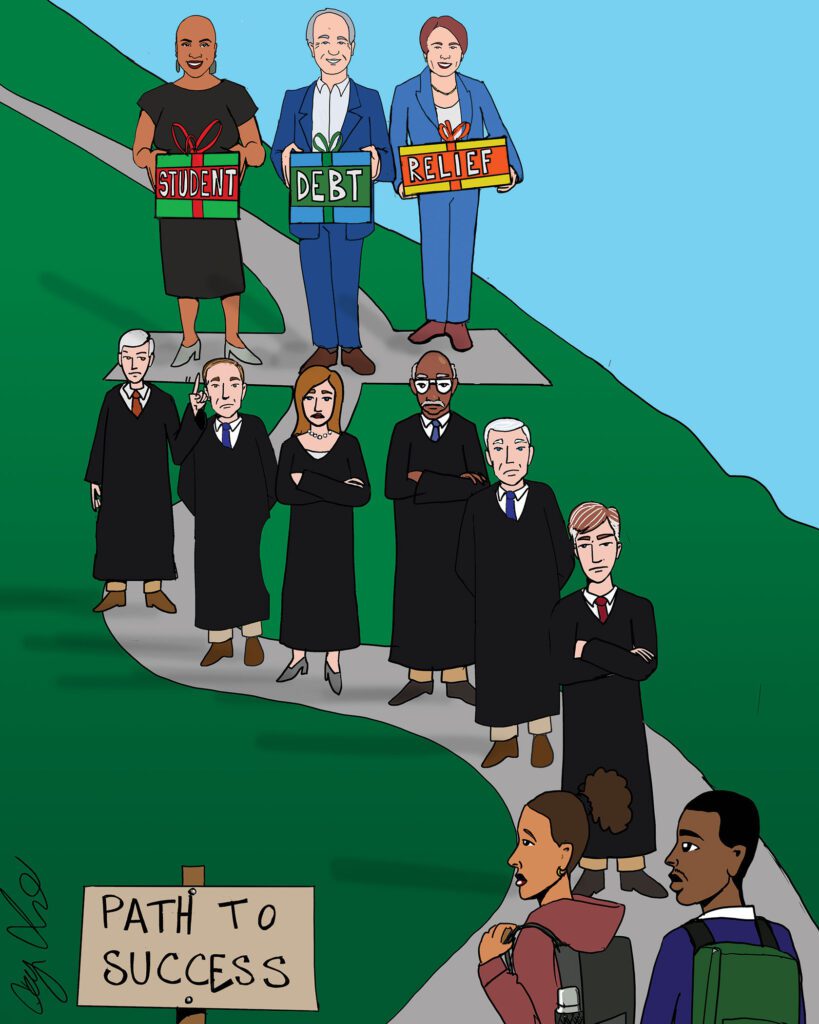
It is said education is the great equalizer, pitted against class divisions and economic and racial divides. That has been a truism for many decades in this country: If you straighten up, work hard, tune out the noise and distractions, focus on your studies and education, you can be anything you believe in and put your mind to. Your intellect and knowledge will be acknowledged as you ascend to higher and higher levels of education.
The reality has always been different, whether it be separate and unequal schools from a Black-white perspective or unequal educational opportunities from an urban, rural and suburban standpoint. The “playing field” has never been equal.
Despite that fact, the child of a farmer from Indiana, the child of a sanitation worker from Chicago and a trust fund baby from Cambridge could all find themselves rubbing shoulders at Harvard, Yale, Northwestern, Penn, UCLA or wherever their ambition and heart’s desire took them. Since the 1960s, however, this prospect has become less and less true, because of a number of factors. A major one of those is the cost of higher education.
From 1963 to 2020, the cost of a year of college across all types of schools has increased more than 143%, or about 2.4 times, according to bestcolleges.com.
Salaries have not increased nearly as much during that same period. Pell grants, which the federal government began awarding to low- to moderate-income students in 1973, have fallen short.
Massachusetts has led the charge to try to remedy this situation, with Senator Elizabeth Warren and Representative Ayanna Pressley pushing reforms and nudging President Joe Biden to make good on his promise to relieve student debt.
In August 2022, the Democratic president made an effort to make good on that promise, but members of the Republican Party have done everything they can to block or reverse this program. Their maneuvers to eliminate this much-needed relief culminated with the Supreme Court’s 6-3 decision in June holding that Biden did not have the authority to relieve student debt for nearly 45 million borrowers. This decision highlighted just how partisan the court has become.
Not deterred, Biden on the day after that ruling turned to a different federal law, the Higher Education Act of 1965, for the authority to provide student debt relief. His Saving on a Valuable Education (SAVE) plan bases payments on a borrower’s income and family size, not their loan balance, which can be forgiven after a certain number of years.
Our elected officials at the federal, state and local levels have also continued to fight the good fight, with Pressley pressing these issues during the recent Congressional Black Caucus weekend and Governor Maura Healey enacting a student debt relief plan for health care workers. The City of Cambridge has announced a fund that will make it possible for Cambridge Rindge and Latin School graduates to earn free degrees at Bunker Hill Community College.
The NAACP’s director of youth strategy, Wisdom Cole, has emphasized that student debt is one of the major factors perpetuating and exacerbating the racial wealth gap by diverting income away from potential investments, like buying a house. As the country seeks solutions to that gap, Cole has identified student debt cancellation as a solution closest to a form of reparations for Black Americans.
“We are recognizing that student debt is an opportunity to right the wrongs of the past. It’s an opportunity for folks to become homeowners, business owners, to have discretionary wealth — but more so, it’s an opportunity to reduce the racial wealth gap in America,” Cole has said.
The ability to obtain a higher education is an integral part of being able to achieve the American dream, including home ownership and a financially secure life. Student debt relief is now an important cornerstone of this dream for millions of Americans. We must continue to support our community and political leaders. We must stay focused and continue to fight for a fairer United States of America.







